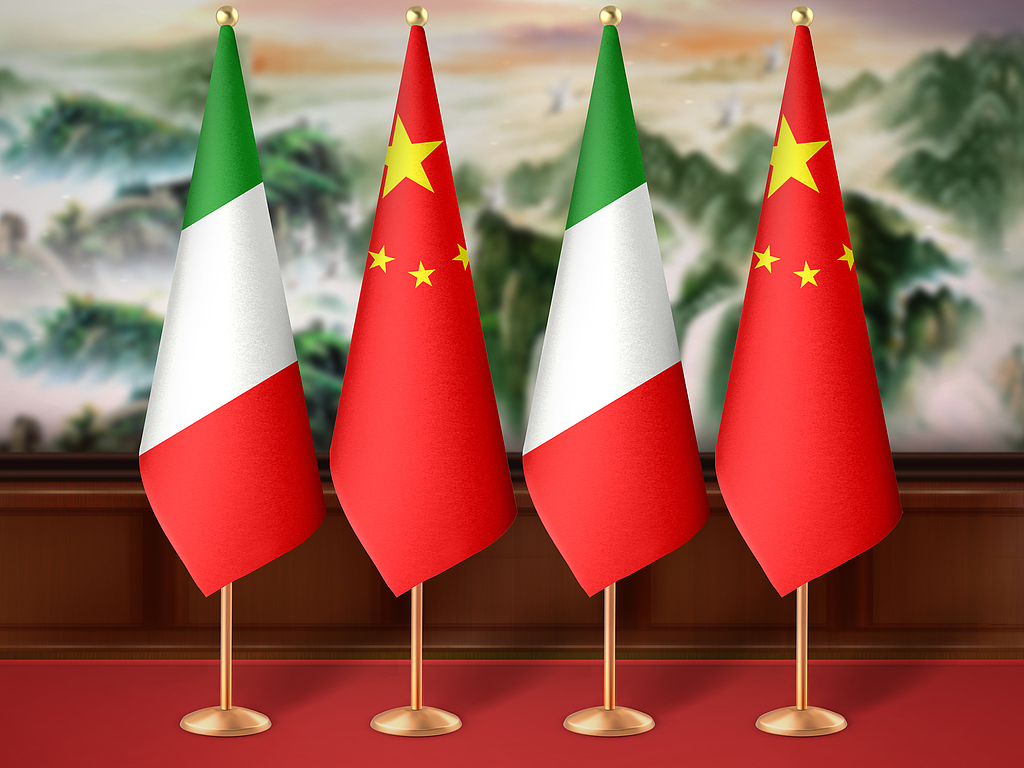Italy can serve as a bridge between East and West
By Luigi Gambardella | China Daily Global | Updated: 2024-11-13 09:14

President Sergio Mattarella's visit to China from Thursday to Tuesday, his second in seven years, marks a pivotal chapter in Sino-Italian relations. As a leader with established international credibility and diplomatic integrity, Mattarella possesses the unique ability to foster dialogue and cooperation, strengthened by his rapport with Chinese President Xi Jinping. Amid global geopolitical complexity, Italy finds itself in a privileged position, capable of acting as a bridge between the East and West due to its European identity and strong relations with both China and the United States. In this role, Italy not only serves as a cultural and economic connector but also stands as a key proponent of open and constructive international engagement.
Mutual openness and constructive communication have never been more needed, with countries increasingly navigating a landscape marked by geopolitical fragmentation. Italy and China share a mutual stance of opposing protectionist policies, advocating trade openness and constructive communication. As two influential economies, a closer Italy-China relationship has the potential to serve as a stabilizing force in broader Europe-China relations and contribute significantly to global economic growth, peace and security — outcomes beneficial to the world at large.
This year is particularly symbolic for Sino-Italian relations as it marks the 700th anniversary of the passing of Marco Polo, whose legacy continues to shape the connection between the two countries. Marco Polo was one of the first Europeans to travel extensively through Asia, documenting his journey and introducing to Europe the wonders of Chinese culture and technology.
His journey laid the foundation for centuries of interaction and exchanges between the East and West, and today, his spirit of curiosity and partnership remains a guiding force for Italy as it seeks to deepen ties with China. Anecdotal history suggests that Marco Polo once prepared an Italian-style dish for Kublai Khan, the famous Yuan Dynasty (1271-1368) emperor, who was fascinated by foreign flavors. This small gesture of cultural diplomacy reminds us of the importance of bridging divides and the enduring impact of cross-cultural exchanges.
Beyond historical and cultural connections, Italy and China enjoy dynamic economic ties, with bilateral trade reaching $71.76 billion in2023. Italian exports to China currently stand at around $27 billion, and are driven by key sectors such as luxury goods, agri-food and precision mechanics. Meanwhile, China remains one of Italy's main partners in supplying technological products and raw materials, fueling innovation and growth within the Italian market.
Mattarella's visit also brought with it commitments to further expand trade, particularly by increasing China's imports of high-quality Italian goods. Leaders from both nations also expressed interest in deepening collaboration in science and technology, environmental protection, clean energy and aerospace — areas with substantial growth potential. These cooperative agreements align with global priorities, particularly in the face of pressing environmental challenges and the shift toward sustainable energy sources. They represent concrete steps toward a more sustainable and technologically advanced future for both nations.
This visit has also catalyzed new opportunities for Italian businesses eager to partner with Chinese counterparts on forward-thinking initiatives. The discussions have paved the way for joint projects in renewable energy, where Italian companies specializing in solar technology could work with Chinese firms to construct solar plants and develop advanced energy storage solutions. In aerospace, too, there are opportunities for Italian expertise to contribute to China's burgeoning interest in advanced air and space technologies.
The electric vehicle sector is another area where collaboration between Italy and China could yield significant benefits. Italy, with its historical tradition in automotive excellence, offers a wealth of expertise, particularly in design and high-performance engineering. Chinese investment in Italy's electric vehicle industry could harness this expertise, combining it with China's leadership in battery technology and mass production capabilities. Such a partnership would not only help modernize Italy's automotive sector but also position both nations as leaders in the global transition to electric mobility. The establishment of joint ventures or research centers focused on EV innovation could drive technological advancements and create new jobs, fostering economic growth and sustainability in both countries.
The Chinese proverb "one tree does not make a forest" is especially relevant in today's interconnected world. At a time when humanity faces shared challenges — from climate change to the societal implications of artificial intelligence — no nation can achieve sustained progress alone. Italy's extensive diplomatic experience, coupled with its strategic position within the European Union, enables it to promote dialogue, understanding and stability between China and Europe. By encouraging collaboration over confrontation, Italy is uniquely positioned to foster relationships that transcend borders, strengthening East-West ties in the process.
As both countries celebrate the 20th anniversary of the Italy-China comprehensive strategic partnership, Mattarella's visit is a crucial step in reinforcing trust and collaboration. However, it is vital that both nations remain committed to transparent and constructive dialogue, taking concrete steps to resolve outstanding issues.
Despite the promising developments and ambitious projects outlined during this visit, Italy-China relations are not without challenges. Trade imbalances and concerns over market access, intellectual property protection, and competition practices persist. Addressing these contentious issues openly and constructively is essential for truly deepening ties and building a robust partnership that respects both nations.
Mattarella's commitment to fostering Italy-China cooperation exemplifies the diplomacy needed to navigate an increasingly complex global environment. His engagement highlights the importance of sustained cooperation, where nations, despite their differences, work together on common goals.
In an era where divisive policies threaten to overshadow the benefits of unity, Marco Polo's legacy lives on in Italy's spirit of building bridges and promoting understanding between the East and West. It offers a compelling vision for the future — one rooted in the timeless values of collaboration and mutual respect.
The views do not necessarily reflect those of China Daily.
The author is president of ChinaEU, a Brussels-based association promoting China-Europe business cooperation in the digital area.
























